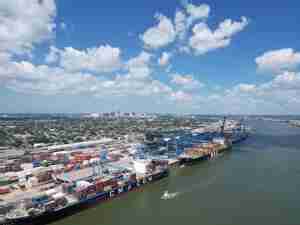Russian Railways said it had halted rail traffic to the port of Novorossiisk to repair a bridge southwest of Krymsk, by far the hardest hit town hit when floodwaters came crashing down suddenly, killing at least 171 people.
The state railways company said the rail bed also was washed out in places.
A trader with a Russian grain exporter said lorry traffic was held up at a mountain crossing north of Novorossiisk and cited estimates from grain forwarders that washed-out roads could take around seven days to repair.
An immediate reduction in the loading of grain for export is unlikely, however. Novorossiisk resumed full operation on Sunday after the weather had forced a temporary halt to loadings.
Elevators at Novorossiisk's two grain terminals were full and stopped intake of grain last week, so they can run down their stocks to sustain current loadings, trade and port sources said.
"They just won't be replenished quickly," the trader said, adding that the impact on exports would emerge once port stocks were exhausted.
Though the affected area is part of Russia's breadbasket region of Krasnodar, the flooding passed by key arable regions, and no damage to Russia's grain and oilseed harvest is expected.
"The Krymsk area has never been distinguished by grain or oilseed production," said Dmitry Rylko, managing director of the Institute for Agricultural Market Studies. "They grow vegetables there."
Rylko added that he was considering a downgrade to his harvest forecast, but because of protracted rain in Russia's south, which began in late May and could result in decreased yields.
Farmers in Russia's south have faced a long spell of extreme weather, starting with an unusually warm start to the winter, during which some of the winter crop failed to go dormant, only to be hit by a fierce cold snap that caught them with no snow cover.
Spring brought a drought, which was relieved in late May by the onset of rains, which have been falling for much of the past six weeks.
Late last month, the Agriculture Ministry cut its forecast for wheat production and exports in the forthcoming 2012/13 crop season as a result of winterkill and spring drought.
For the new season, the ministry cut its wheat crop forecast to 46 million to 4 9 million tons from 57 million expected earlier, with the export forecast cut to 16 m illion to 18 million tons from 20 million.
A Reuters poll in late June showed Russia, Ukraine and Kazakhstan's combined wheat crop would fall 22 percent to 78.9 million tons this year from 2011, with the biggest impact on yields from winterkill and spring drought in Russia and Ukraine. (Reuters)









